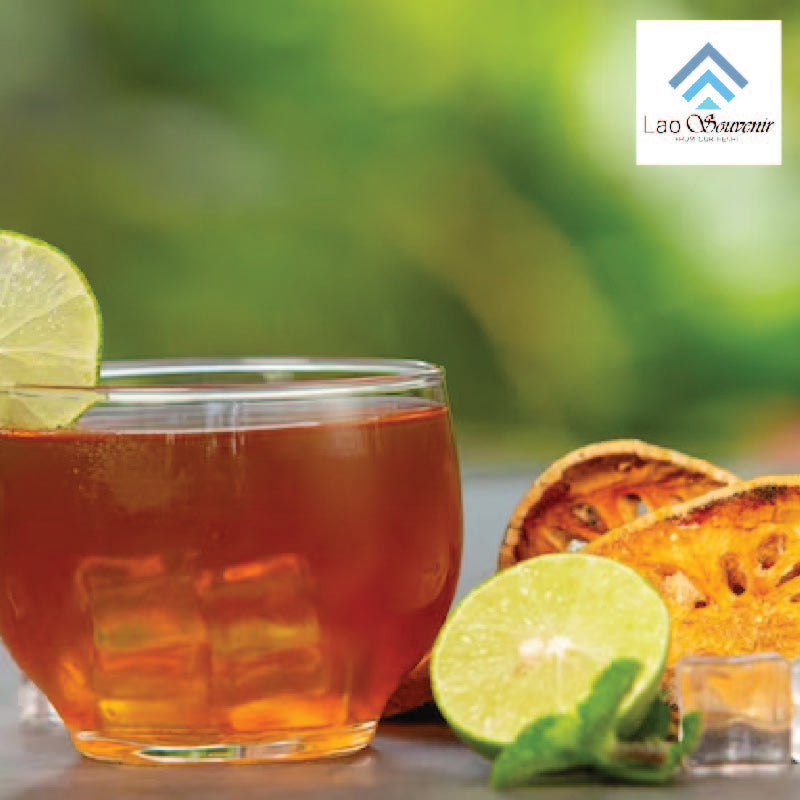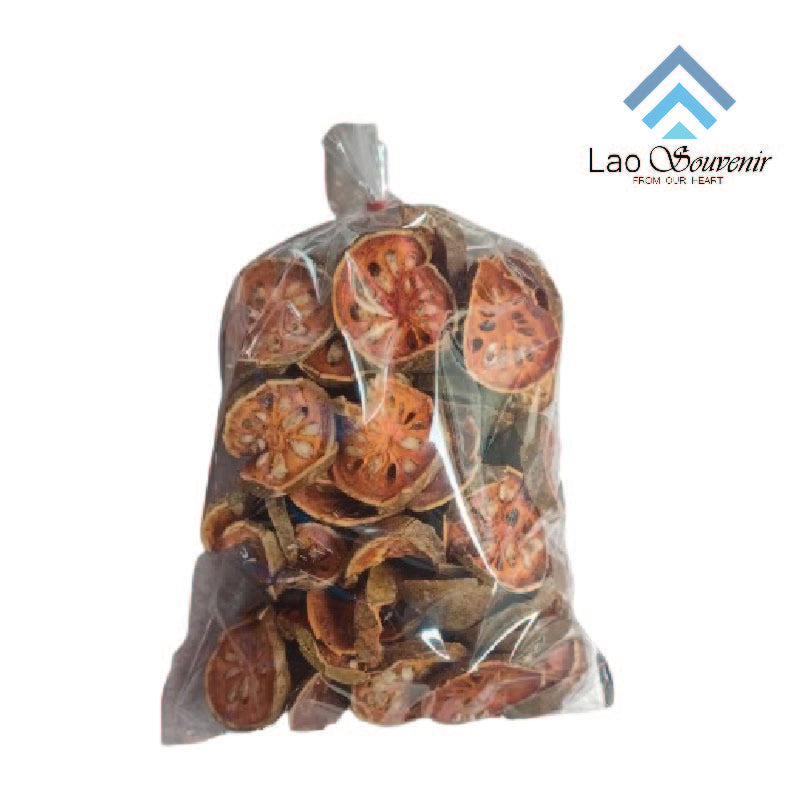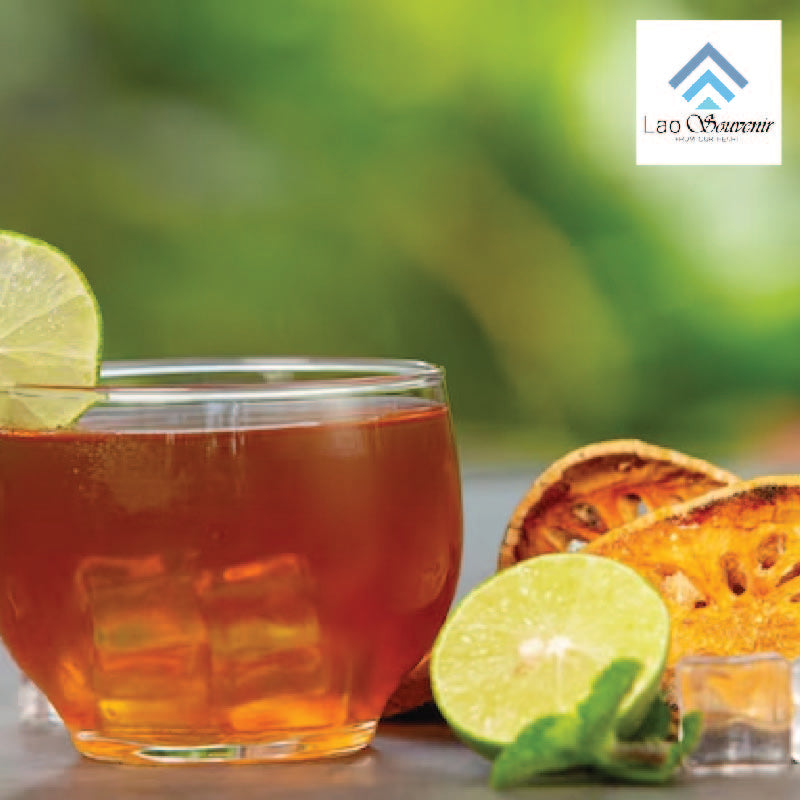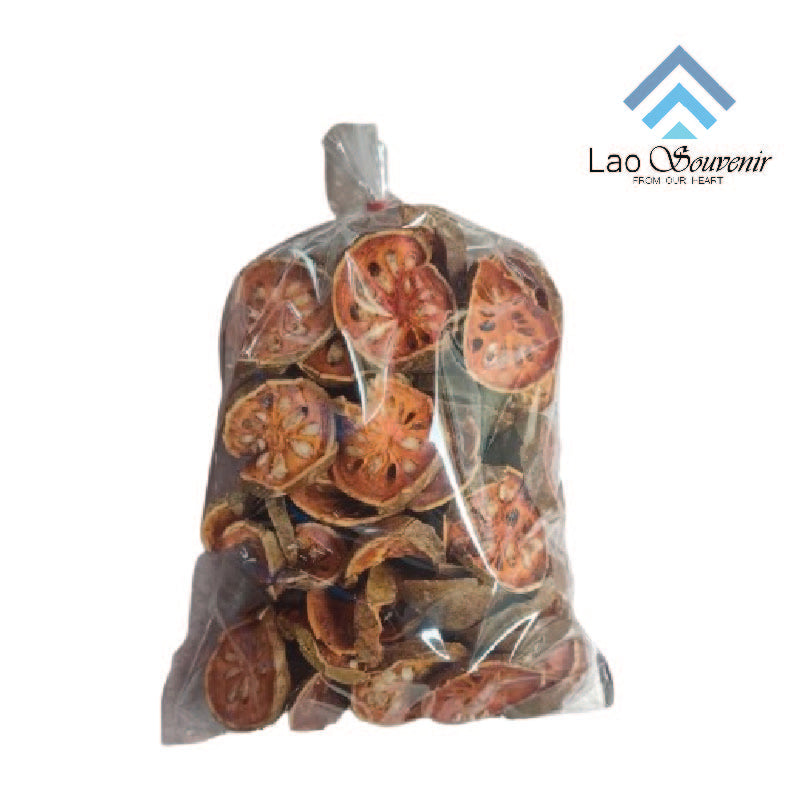Lao Souvenir
Artisan Lao Bael Fruit Tea 1kg bag
Artisan Lao Bael Fruit Tea 1kg bag
Couldn't load pickup availability
Artisan Lao Bael Fruit Tea 1kg bag
Discover the authentic flavors and craftsmanship of Artisan Lao Bael Fruit Tea 1kg bag. Sourced from the rich soils and traditional artisans of Laos, this product embodies quality and heritage.
Dried bael fruit, also known as wood apple or Bengal quince, is a popular ingredient for making tea in Laos. This fruit, known locally as "matoum," has a rich history and numerous health benefits. Here’s a detailed look at dried bael fruit tea from Laos: The Bael Fruit Description and Origin: Bael fruit (Aegle marmelos) is a hard-shelled fruit native to South and Southeast Asia. It has been used in traditional medicine for centuries due to its therapeutic properties. In Laos, the fruit is harvested and dried to make a flavorful and health-boosting tea. Harvesting and Drying: The process begins with harvesting ripe bael fruits, which are then sliced and sun-dried. The drying process concentrates the flavors and preserves the fruit, allowing it to be used year-round. The dried slices can be steeped in hot water to make a fragrant and refreshing tea. Health Benefits Digestive Health: Bael fruit tea is renowned for its digestive benefits. It helps in treating constipation, diarrhea, and other digestive issues. The high fiber content aids in smooth bowel movements and promotes a healthy digestive tract. Anti-inflammatory and Antioxidant Properties: The tea is rich in antioxidants, which help combat free radicals and reduce oxidative stress. Its anti-inflammatory properties can also aid in reducing inflammation and preventing chronic diseases. Immune System Support: Bael fruit is packed with vitamins, especially vitamin C, which boosts the immune system. Regular consumption of bael fruit tea can help ward off common infections and improve overall health. Cooling and Hydrating: In the hot climate of Laos, bael fruit tea serves as a cooling and hydrating drink. It’s often consumed to beat the heat and stay refreshed during the sweltering summer months. Cultural Significance Traditional Use: In Lao culture, bael fruit tea is more than just a beverage; it's a part of traditional medicine and daily life. It’s often served to guests as a gesture of hospitality and is commonly consumed in households for its health benefits. Preparation: To make bael fruit tea, dried bael fruit slices are steeped in boiling water for about 10-15 minutes. The resulting infusion has a sweet, aromatic flavor with hints of caramel and citrus. It can be enjoyed hot or cold, and sweetened with a touch of honey if desired. Supporting Local Communities Sustainable Harvesting: The production of dried bael fruit for tea supports local farmers and communities in Laos. By purchasing this product, consumers contribute to the livelihoods of these farmers, enabling them to sustain their traditional practices and improve their quality of life. Eco-friendly: Laos, with its minimal industrial infrastructure, ensures that the production of bael fruit tea is environmentally friendly. The natural methods of harvesting and drying the fruit align with the country’s commitment to preserving its pristine natural environment. Conclusion Dried bael fruit tea is a delightful and healthful beverage that offers a taste of Laos's rich cultural heritage and natural bounty. Whether you’re looking to improve your digestive health, boost your immune system, or simply enjoy a refreshing drink, bael fruit tea is an excellent choice. By purchasing this tea, you’re also supporting local Lao communities and contributing to sustainable agricultural practices. Explore the unique flavors and benefits of bael fruit tea and bring a piece of Laos into your home. Read more about Bael Fruit Tea on our Blog
Why Choose Artisan Lao Artisan Lao Bael Fruit Tea 1kg bag?
- Handcrafted with care by local Laotian artisans.
- Made using traditional methods passed down through generations.
- Supports sustainable farming and fair trade practices.
Frequently Asked Questions
What makes Artisan Lao Artisan Lao Bael Fruit Tea 1kg bag unique?
It is crafted with traditional Laotian techniques and sourced from the finest local ingredients, ensuring authenticity and quality.
How do I use Artisan Lao Artisan Lao Bael Fruit Tea 1kg bag?
Use it as intended for its category, whether as a tea, spice, or snack, to enjoy the full flavor and benefits.
Share




